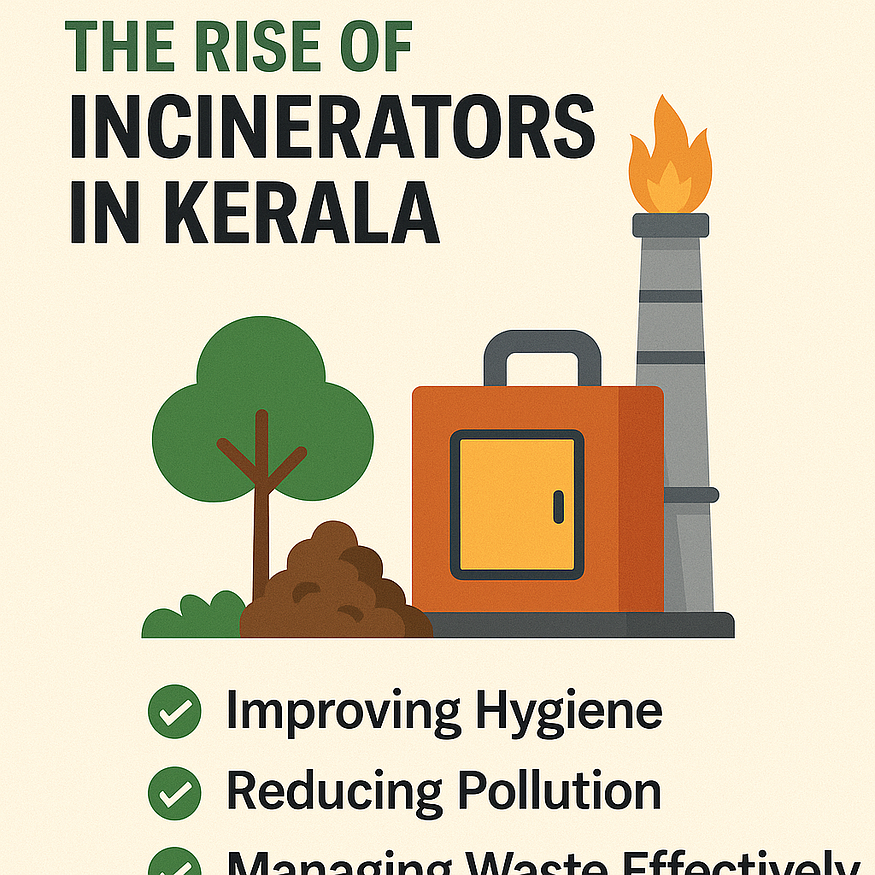Alternatives to Traditional Waste Disposal: The Rise of Incinerators in Kerala

Kerala, known for its natural beauty and high population density, has long struggled with effective waste management. With traditional dumping methods leading to pollution and health risks, incinerators in Kerala are now gaining popularity as a cleaner, faster, and more efficient waste disposal method.
What Are Incinerators?
Incinerators are machines designed to burn waste materials at high temperatures, converting them into ash, flue gas, and heat. They are especially useful for disposing of non-recyclable waste, biomedical waste, and materials that pose health risks when dumped openly.
Why Kerala Needs Incinerators
Kerala produces thousands of tons of waste daily. Open dumping and landfill sites not only consume valuable land but also emit methane and leachate, contaminating water and air.
Here’s how incinerators are offering a solution:
- 🔥 Rapid Waste Reduction: Reduces waste volume by up to 90%.
- 🌿 Minimizes Land Use: Less dependency on landfill space.
- 🦠 Sanitary Disposal: Controls the spread of harmful pathogens.
- 🏙️ Urban Utility: Suitable for cities and towns with limited space.
Types of Incinerators Used in Kerala
- Municipal Waste Incinerators — For general solid waste from homes and markets.
- Biomedical Waste Incinerators — For safe disposal of hospital and clinic waste.
- Industrial Incinerators — For factories and hazardous material management.
- Portable Incinerators — For schools, hostels, and small institutions.
Government and Private Initiatives
Various municipalities and private organizations in Kerala have begun adopting incineration technologies. Some panchayats are even integrating portable incinerators into schools and public toilets to maintain hygiene.
The Suchitwa Mission, Kerala’s flagship cleanliness program, has also promoted small-scale incinerators in government buildings and residential complexes.
Concerns and Best Practices
While incinerators solve many problems, they must be properly managed:
- Ensure emission controls are in place to avoid air pollution.
- Use advanced filters to capture harmful particles.
- Combine incineration with segregation and recycling for best results.
Conclusion
As Kerala continues to grow, so does its waste. Traditional methods are no longer sufficient or safe. The rise of incinerators in Kerala marks a shift toward more modern, hygienic, and space-saving waste management practices — helping the state protect its environment and public health.

Comments
Post a Comment